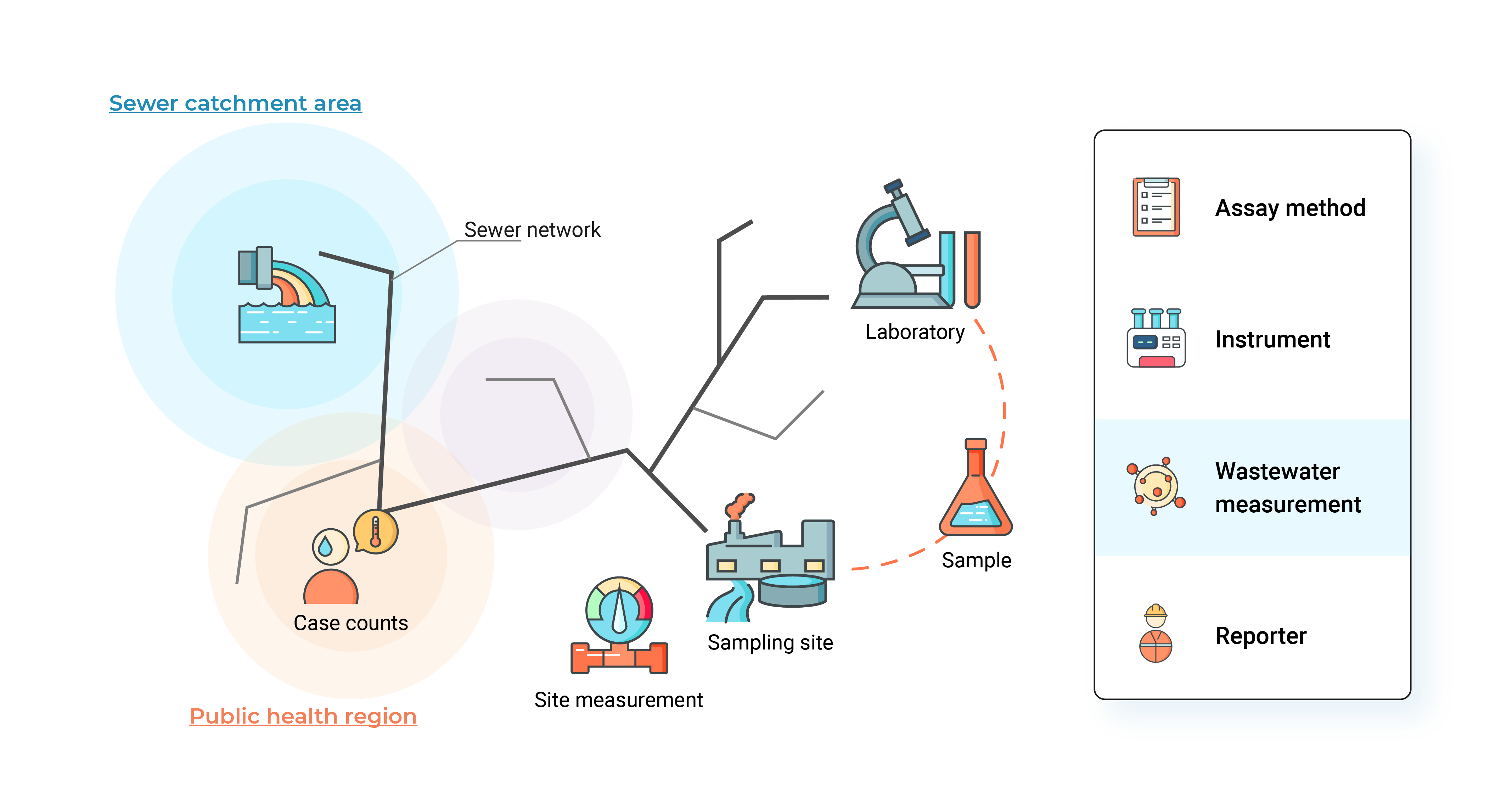Open Data Model
Metadata and code to support covid-19 environmental surveillance for public health. Wastewater-based surveillance for Covid-19, with support for other health risks and environmental settings. [1]

- Wastewater-based surveillance (WBS) of SARS-CoV-2 is developing and expanding rapidly during the current COVID-19 pandemic. WBS has demonstrated itself as valuable public health tool with an increasing number of municipalities that have identified new SARS-CoV-2 transmission using wastewater testing prior to clinical testing. Wastewater testing has also identified new surges and waves that has informed early public health response. Internationally, there are over 2000 testing sites in over 50 countries.
- WBS has a history informing public health action through its use to monitor health threats such as polio, antimicrobial resistance, as well as illicit drugs, among others. However, as a surveillance tool for pandemic purposes, the program is relatively new and there are implementation gaps. Currently, there is little to no controlled vocabulary on how WBS results should ideally be reported. Hence, the idea of a WBS data model that captures all relevant fields that should ideally be reported on when sharing WBS data.
- The ODM strives to improve wastewater surveillance through the development of an open data structure, including metadata and vocabulary. ODM operates under the guidance of an international steering committee. Working groups can be ongoing or created to address specific tasks and projects. Note that we adhere to the FAIR Guiding Principles with recognition of benefit from a common data structure, including metadata and vocabulary.